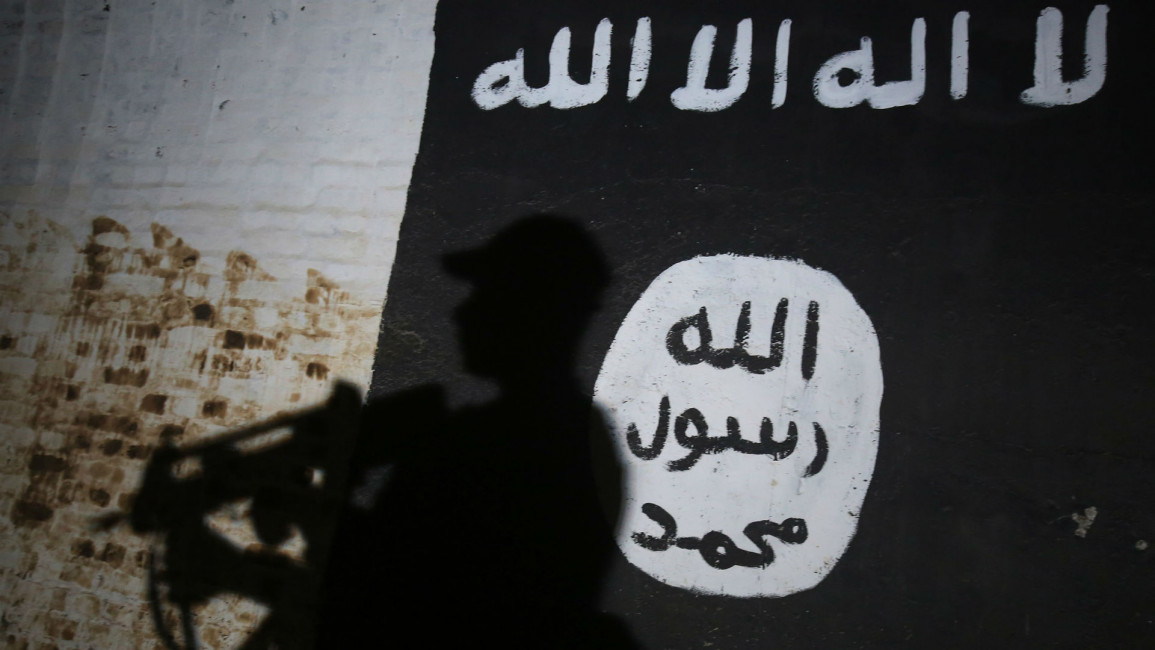Iraq holds over 19,000 accused of Islamic State, militant ties
Iraq has detained more than 19,000 people accused of connections to the Islamic State group or other terrorism-related offenses, sentencing to death more than 3,000 of them.
The mass incarceration and speed of guilty verdicts raise concerns over potential miscarriages of justices - and worries that jailed militants are recruiting within the general prison population to form new extremist networks.
The numbers are based on an analysis by The Associated Press of a spreadsheet listing all 27,849 people imprisoned in Iraq as of late January.
The information was provided by an official who requested anonymity.
Thousands more are believed to be held in detention by other bodies, including the Federal Police, military intelligence and Kurdish forces.
Around 8,861 of the prisoners listed in the spreadsheet were convicted of terrorism-related charges since the beginning of 2013 - arrests overwhelmingly likely to be linked to the Islamic State group, according to an intelligence figure in Baghdad.
 |
Since 2014, about 250 executions of convicted IS members have been carried out. About 100 of those took place last year, a sign of the accelerating pace of hangings. |  |
Another 11,000 people currently are being detained by the intelligence branch of the Interior Ministry, undergoing interrogation or awaiting trial, a second intelligence official said.
"There's been great overcrowding ... Iraq needs a large number of investigators and judges to resolve this issue," Fadhel al-Gharwari, a member of Iraqi's parliament-appointed human rights commission, told the AP.
Al-Gharwari said many legal proceedings have been delayed because the country lacks the resources to respond to the spike in incarcerations.
Large numbers of Iraqis were detained during the 2000s, when the US and Iraqi governments were battling Sunni militants, including al-Qaeda, and Shia militias.
In 2007, at the height of the fighting, the US military held 25,000 detainees. The spreadsheet obtained by the AP showed that about 6,000 people arrested on terror charges before 2013 still are serving those sentences.
But the current wave of detentions has hit the Iraqi justice system much harder because past arrests were spread out over a much longer period and the largest numbers of detainees were held by the American military, with only a portion sent to Iraqi courts and the rest released.
Human Rights Watch warned in November that the broad use of terrorism laws meant those with minimal connections to the Islamic State group are caught up in prosecutions alongside those behind the worst abuses.
 |
The mass incarceration and speed of guilty verdicts raise concerns over potential miscarriages of justices - and worries that jailed militants are recruiting within the general prison population to form new extremist networks. |  |
The group estimated a similar number of detainees and prisoners - about 20,000 in all.
"Based on all my meetings with senior government officials, I get the sense that no one - perhaps not even the prime minster himself - knows the full number of detainees," said Belkis Wille, the organization's senior Iraq researcher.
Iraqi Prime Minister Haider al-Abadi, who is running to retain his position in national elections slated for May, has repeatedly called for accelerated death sentences for those charged with terrorism.
The spreadsheet analysed by the AP showed that 3,130 prisoners have been sentenced to death on terrorism charges since 2013.
Since 2014, about 250 executions of convicted IS members have been carried out, according to the Baghdad-based intelligence official. About 100 of those took place last year, a sign of the accelerating pace of hangings.
The United Nations has warned that fast-tracking executions puts innocent people at greater risk of being convicted and executed, "resulting in gross, irreversible miscarriages of justice."
The rising number of those detained and imprisoned reflects the more than four-year fight against the Islamic State group, which first formed in 2013 and conquered nearly a third of Iraq and neighbouring Syria the next year.
Iraqi and Kurdish forces, backed by a US-led coalition, eventually rolled the group back on both sides of the border, regaining nearly all of the territory by the end of last year.
Throughout the fighting, Iraq has pushed thousands of IS suspects through trials in counterterrorism courts. Trials witnessed by the AP and human rights groups often took no longer than 30 minutes.



